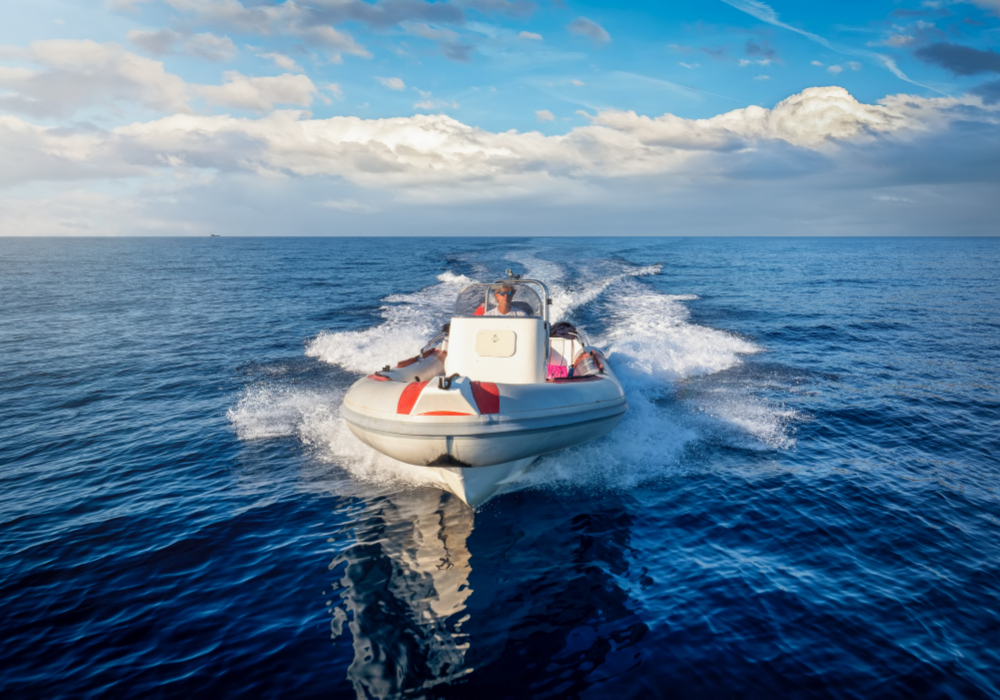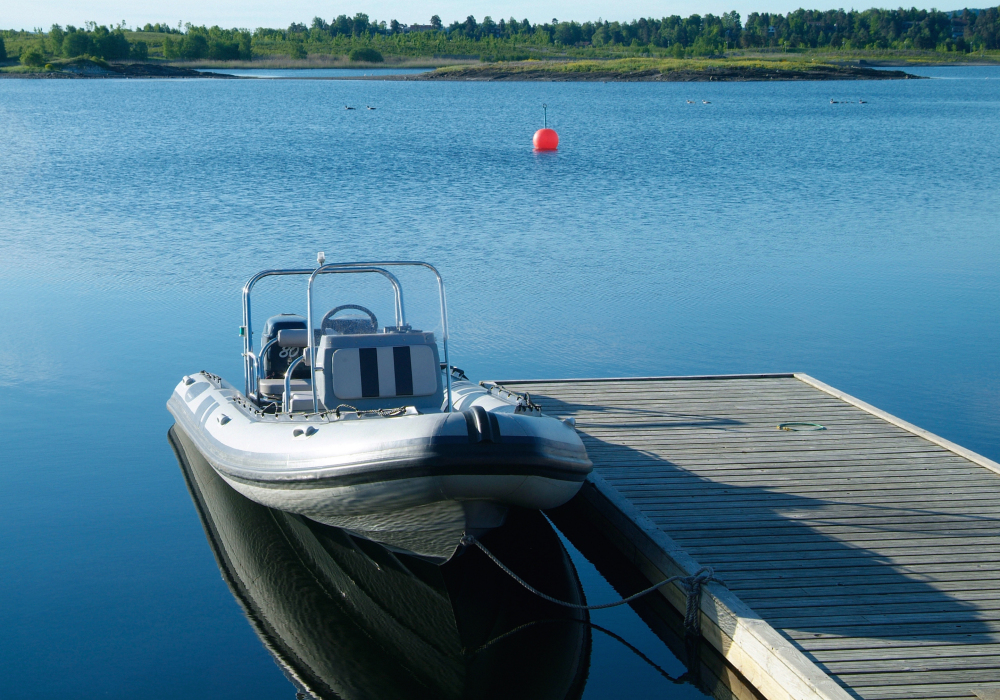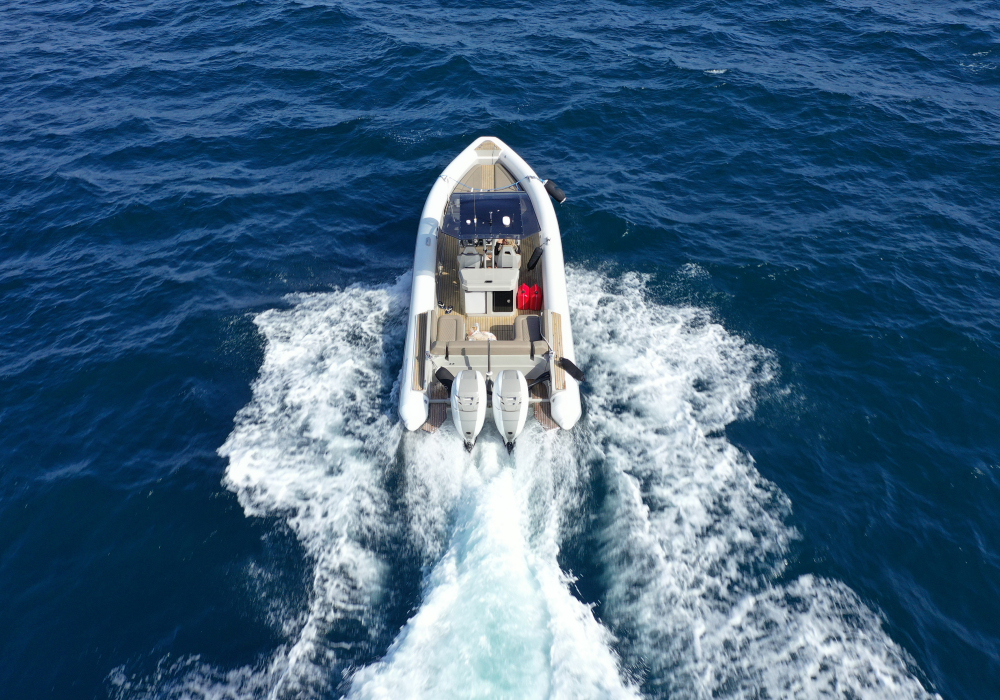A Short Guide to RIB Insurance
Choosing the right RIB insurance is essential, not just to make sure you’re properly protected, but also to avoid paying for cover you don’t need. This guide explains the main types of RIB insurance, typical exclusions, how insurers assess risk, and what you can do to keep your premiums as low as possible.
What Are the Types of RIB Insurance?
1. Vessel Loss or Damage
Vessel Loss or Damage insurance helps protect you against the cost of repairing or replacing your RIB if it’s affected by events such as accidental collision, theft, fire, or storm damage.
You can usually choose the level of cover you need, ideally reflecting the full cost of replacing your boat with a similar craft. Depending on your boat’s value, insurers may offer either market value or agreed value options, with the premium, and the amount payable in the event of a total loss, varying based on the option you select.
2. Third Party Liability

Third Party Liability insurance helps protect you from potential liabilities you may incur to other people for death, injury or property damage arising from the use of the RIB. Most insurers provide a set level of liability cover, but some allow you to choose a higher limit for added protection, with premiums adjusted accordingly.
While having liability cover is not mandatory in the UK for most leisure boats, it may be required if you wish to navigate certain inland waterways or to use a commercial marina. In addition, countries such as Spain, Italy and Greece may require you to prove you have liability cover in place.
3. Other RIB Related Insurance Covers
There are a range of related covers available, further details of which can be found by clicking the links below:
- Tender Cover
- Trailer Cover
- Outboard Cover
- Personal Belongings
- Personal Accident
- Medical Expenses
- Emergency Travel
- Emergency Breakdown
- Search & Rescue Costs
- Marina Benefits
- Machinery Extension
- Replacement Locks & Keys
- Courtesy Vessel
- Mooring Fees
- NCD Protection
Some insurers bundle such covers into a single package, but this can result in paying for extras you may not need. Choosing a provider that lets you customise your cover can help you stay fully protected without overspending.
What Are Common RIB Insurance Exclusions or Restrictions?
Every policy is different, but most boat insurance plans will exclude losses arising from:
- Using the vessel for an illegal or non-permitted purpose.
- Navigating the boat outside the geographical limits of the policy.
- Failure to ensure the vessel is properly manned or maintained.
- Reckless acts by anyone in charge of the vessel.
- Wear, tear, depreciation, or similar deterioration.
- Damage by Insects, vermin, barnacles, marine growth, corrosion, rot, rust etc.
Most insurers will also require you to:
- Take reasonable steps to look after the vessel.
- Ensure anyone using it is competent to do so.
- Ensure that if moored, the vessel is in a safe, properly maintained location.
- Comply with any regulations relating to the safe operation of the vessel.
- Provide them with accurate, current information.
- Always be honest in your dealings with them.
Always check the policy wording carefully, as exclusions and requirements vary between insurers.
Where Does RIB Cover Operate?
When choosing RIB insurance, it’s important to understand exactly where your cover applies. There are two key factors to consider:

1. Your Intended Cruising Area
Your cruising area refers to the specific regions, waterways, or types of waters where you plan to operate your RIB and where you’ll want the protection of your insurance.
Most insurers offer a drop-down list of broad geographical zones to choose from. However, some modern providers now allow you to draw your exact cruising area on a digital map, giving you more tailored and flexible cover.
2. Where Your RIB Is Kept When Not in Use
Insurers also need to know where your boat will be kept when not in use.
-
If moored.
The type of mooring, its location and who can access it may affect your cover and premiums. -
If stored ashore.
Insurers may consider how and where your boat is stored, including the type of premises and the level of security in place.
Carefully considering your cruising area and mooring / storage arrangements can help ensure you get the right level of protection, wherever your boat is located.
What Can I Use My RIB For?
Most RIB insurances include cover for standard “private and pleasure” use. This typically means you can enjoy your boat for leisure purposes, although higher-risk activities such as racing are usually excluded.
Depending on your insurer, you may be able to extend your policy to include additional uses, such as:
Who Can Use My RIB?
Just like with cars or aircraft, a significant part of the risk associated with a RIB comes from the person operating it—not the vessel itself. However, unlike those other forms of transport, boats usually don’t require a licence to use them. Because of this, insurers increasingly rely on other indicators of experience and competence when calculating your premium, such as:
- Who is allowed to operate the RIB?
- Their overall boating experience
- Their specific experience with RIBs
- Any relevant qualifications or certifications
What this does mean is that owners who are prepared to restrict who can be in control of the RIB to relatively experienced, well qualified users, will tend to benefit from lower premiums.
How Can I Keep My RIB Insurance Premium Down?
Your RIB insurance premium is influenced by many factors, including who you buy your policy from, the flexibility of their cover options, and any discounts they offer. The good news is that there are several practical steps you can take to reduce your costs:

-
Gain relevant qualifications.
Completing recognised RIB training courses can demonstrate competence and help lower your premium. -
Limit who can operate your RIB.
Restricting control to experienced, qualified users reduces risk, and is often rewarded with cheaper cover. -
Improve your boat’s physical security.
Good locks, alarms, and protective equipment can make your vessel less vulnerable to theft or damage. -
Store your RIB safely.
Keeping it in a secure marina, boatyard, or well-protected location when not in use can reduce insurance costs. - Consider a higher excess.
Increasing the excess on your Vessel Loss or Damage cover can reduce your annual premium so look for a provider who allows you to choose your preferred excess level. -
Only choose the cover you actually need.
If your insurer allows flexible cover options, select only those that are relevant to your boating requirements. -
Add specialist cover only when necessary.
If you won’t be racing or chartering from day one, you can add these options later rather than paying upfront for unused cover. -
Select the correct cruising area.
Choose the waters you know you’ll use. You can always extend your cruising limits later if your plans change. -
Update your policy promptly when circumstances change.
For example, if an inexperienced user no longer needs cover, or a specific option is no longer required, update your policy straight away rather than waiting for renewal. -
Look out for hidden administration fees.
Some insurers charge for mid-term adjustments, so factor this into your decision-making.
Taking a little extra time to review the cover you need, and providing your insurer with clear details about you, your vessel, and how you plan to use it, can make a meaningful difference in lowering the cost of your RIB insurance.
How Can Visicover Help Reduce Your RIB Insurance Premium?
Visicover offers several features designed to help you reduce your insurance costs:
- Customisable cover so you can tailor your insurance to your needs
- Extensive discounts, including for experienced boat users or higher excesses
- Flexible payment over nine months at no extra cost
- Online policy management, allowing you to update cover any time as your needs change, usually with no admin fee
Find Out More






